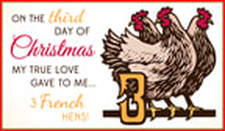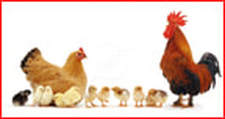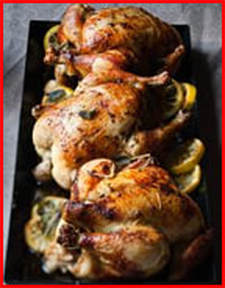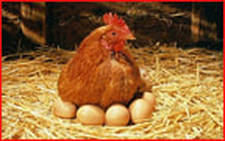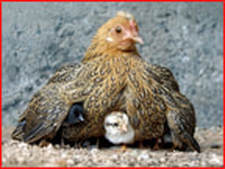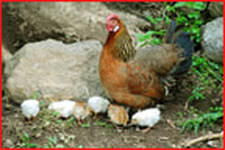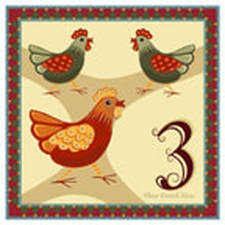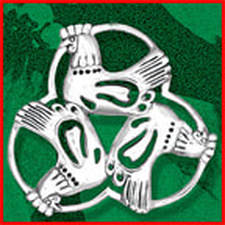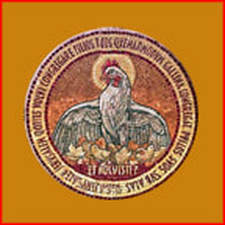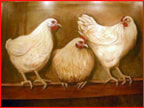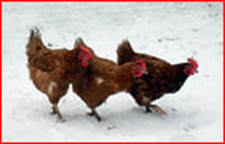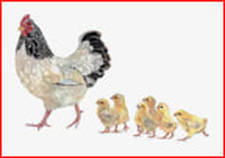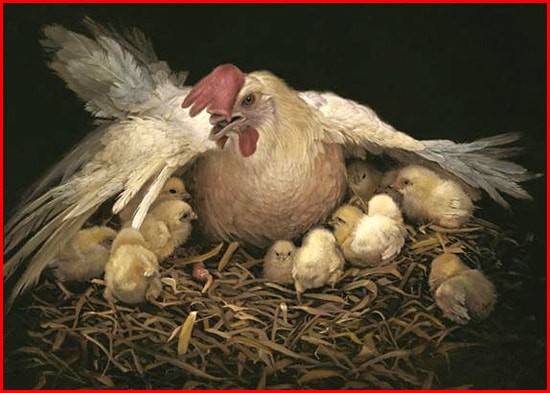| Devotion to Our Lady |
|
- Homepage
-
Daily Thoughts
- 2023 October Daily Thoughts
- Daily Thoughts Lent 2020
- Daily Thoughts for Advent 2019
- Daily Thoughts for October 2019
- Daily Thoughts for September 2019
- Daily Thoughts for August 2019
- Daily Thoughts for July
- Daily Thoughts for June
- Daily Thoughts for Easter 2019
- Daily Thoughts for Lent 2019
- Daily Thoughts for Christmas
- Daily Thoughts Easter 2022
- Sacred Heart
- Holy Ghost
-
Spiritual Life
- Holy Mass Explained
- First Friday Devotions
- First Saturday Devotions
- The Mercy of God
- Vocations
- The Path Everyone Must Walk >
- Gift of Failure
- Halloween or Hell-O-Ween?
- Ignatian Spiritual Exercises >
- Meditation is Soul-Saving
- Spiritual Communion
- Miraculous Medal
- Enrollment in Miraculous Medal
- St. Benedict Medal
- Holy Water
- Advice on Prayer
- Your Daily Mary
-
Prayers
- September Devotions
- Seven Sorrows of Our Lady
-
Novenas
>
- NV-Help of Christians
- NV-Nativity of Our Lady
- NV-Seven Sorrows
- NV- Sorrowful Heart
- NV-Pope St Pius X
- NV-La Salette
- NV-St Michael Archangel
- NV-Immaculate Heart
- NV-Assumption
- NV-Novena for Fathers
- NV-Novena for Your Mother
- NV-St Raphael Archangel
- NV-Souls in Purgatory
- NV-All Saints Day
- NV-Christ the King
- NV-Divine Motherhood
- NV-Guardian Angels
- NV-Rosary
- NV-Mirac Med
- NV- Imm Conc
- NV - Guadalupe
- NV - Nativity of Jesus
- NV-Epiphany
- NV-OL Good Success
- NV-Lourdes
- NV-St Patrick
- NV-St Joseph
- NV-Annunciation
- NV-St Louis de Montfort
- NV-OL Good Counsel
- NV-Last Supper
- NV-Passion
- NV-Pentecost
- NV-Ascension
- NV-Sacred Heart
- NV-Sacred Heart & Perpetual Help
- NV-Corpus Christi
- NV-OL of Perpetual Help
- NV-Queenship BVM
- NV-OL of Mount Carmel
- NV-St Mary Magdalen
- NV- Im Hrt
- August Devotions to IHM
- Immaculate Heart of Mary
- Litany of Dependence
- Prayers to St Mary Magdalen
- Prayers in Times of Sickness Disease & Danger
- Holy Souls in Purgatory
- Meditations on the Litany of Our Lady
- Special Feast Days
- Prayers to Mary (Mon-Sun)
- Litanies to Our Lady >
- Various & Special Needs
- Our Lady of the Rosary
- Our Lady of Mt. Carmel
- Our Lady of Perpetual Help
- Our Lady of Guadalupe
- Other titles of Our Lady
-
Rosary
- Downloads
- Consecration
- Easter Season
-
Holy Week
- Last Seven Words of Jesus >
- Characters of Passion >
- The Last Days of Christ
- Before Palm Sunday
- Palm Sunday
- Monday in Holy Week
- Tuesday in Holy Week
- Wednesday in Holy Week
- Holy Thursday (Last Supper)
- Holy Thursday (Agony & Arrest)
- Night Vigil with Christ
- Good Friday (Pilate & Herod)
- Good Friday (Way of Cross & Crucifixion)
- Saturday in Holy Week
-
Lent
- Ideas for Lent
- Daily Lenten Planner
- Daily Lenten Liturgy
- From Cold to Hot
- Lent with Aquinas
- Lent with Dom Gueranger
- Virtues for Lent
- History of Penance
- How Expensive is Sin?
- Confession of Sins
- Letter to Friends of the Cross
- Sermons for Lent
- Stations of the Cross >
- Lenten Prayers
- 7 Penitential Psalms
- Lenten Psalms SUN
- Lenten Psalms MON
- Lenten Psalms TUE
- Lenten Psalms WED
- Lenten Psalms THU
- Lenten Psalms FRI
- Lenten Psalms SAT
- Lenten Laughs
- Septuagesima
-
Christmas
- Epiphany Explained
- Suggestions for Christmas
- Food For Thought
- Christmas with Aquinas
- Christmas with Dom Gueranger
- Christmas Prayers
- Candles & Candlemas
- Christmas Sermons
- Christmas Prayers SUN
- Christmas Prayers MON
- Christmas Prayers TUE
- Christmas Prayers WED
- Christmas Prayers THU
- Christmas Prayers FRI
- Christmas Prayers SAT
- Twelve Days of Christmas >
-
Advent Journey
- Purgatory
- Christ the King
- Legion of Mary
- Scapular
-
Saints
-
Martyrs for the Faith
>
- Your Daily Martyr >
- All 365 Days of Martyrs
- Cristeros
- St Valentine & Valentine's Day
- Martyrs--Thomas Becket
- Martyrs--John the Apostle
- Holy Machabees
- Age of Martyrdom
- Carmelites of Compiegne
- Martyrs--Peter & Paul
- Martyrs--John the Baptist
- Martyrs--Andrew
- Martyrs--James the Great
- Martyrs--North American
- Martyrs--Seven Holy Sleepers
- Martyrs--Afra
- School of Martyrdom
- Martyrs--Christina
- Desert Saints >
- Saints for Sinners >
- Saints of Mary >
- History of All Saints Day
-
Martyrs for the Faith
>
- Precious Blood
- Synod 2023
-
Catechism
- Catechism Lesson 1
- Catechism Lesson 2
- Catechism Lesson 3
- Catechism Lesson 4
- Catechism Lesson 5
- Catechism Lesson 6
- Catechism Lesson 7
- Catechism Lesson 8
- Catechism Lesson 9
- Catechism Lesson 10
- Catechism Lesson 11
- Catechism Lesson 12
- Catechism Lesson 13
- Catechism Lesson 14
- Catechism Lesson 15
- Catechism Lesson 16
- Catechism Lesson 17
- Catechism Lesson 18
- Catechism Lesson 19
- Catechism Lesson 20
- Catechism Lesson 21
- Catechism Lesson 22
- Bible Study
-
Calendar
- Miracles
- Apparitions
- Shrines
- Prophecies
- Angels Homepage
- Hell
-
Church Crisis
- Conspiracy Theories
- Amazon Synod 2019 >
- Liberalism & Modernism
- Modernism--Encyclical Pascendi
- Modernism & Children
- Modernism--Documents
- The Francis Pages
- Church Enemies on Francis
- Francis Quotes
- Amoris Laetitia Critique
- Danger of Ignorance (Pius X)
- Restore all In Christ (Pius X)
- Catholic Action (Pius X)
- Another TITANIC Disaster?
- The "Errors of Russia"
- CRISIS PRAYERS
- Election Novena 2024
- The Anger Room
- War Zone
- Life of Mary
- Spiritual Gym
- Stupidity
- Coronavirus and Catholicism
- History & Facts
- Books
- Catholic Family
- Children
- Daily Quiz
-
Novena Church & Pope
- Day 01 Church-Pope Novena
- Day 02 Church-Pope Novena
- Day 03 Church-Pope Novena
- Day 04 Church-Pope Novena
- Day 05 Church-Pope Novena
- Day 06 Church-Pope Novena
- Day 07 Church-Pope Novena
- Day 08 Church-Pope Novena
- Day 09 Church-Pope Novena
- Day 10 Church-Pope Novena
- Day 11 Church-Pope Novena
- Day 12 Church-Pope Novena
- Day 13 Church-Pope Novena
- Day 14 Church-Pope Novena
- Day 15 Church-Pope Novena
- Day 16 Church-Pope Novena
- Day 17 Church-Pope Novena
- Day 18 Church-Pope Novena
- Day 19 Church-Pope Novena
- Day 20 Church-Pope Novena
- Day 21 Church-Pope Novena
- Day 22 Church-Pope Novena
- Day 23 Church-Pope Novena
- Day 24 Church-Pope Novena
- Day 25 Church-Pope Novena
- Day 26 Church-Pope Novena
- Day 27 Church-Pope Novena
- Day 28 Church-Pope Novena
- Day 29 Church-Pope Novena
- Day 30 Church-Pope Novena
- Day 31 Church-Pope Novena
- Day 32 Church-Pope Novena
- Day 33 Church-Pope Novena
- Day 34 Church-Pope Novena
- Day 35 Church-Pope Novena
- Day 36 Church-Pope Novena
- Day 37 Church-Pope Novena
- Day 38 Church-Pope Novena
- Day 39 Church-Pope Novena
- Day 40 Church-Pope Novena
- Day 41 Church-Pope Novena
- Day 42 Church-Pope Novena
- Day 43 Church-Pope Novena
- Day 44 Church-Pope Novena
- Day 45 Church-Pope Novena
- Day 46 Church-Pope Novena
- Day 47 Church-Pope Novena
- Day 48 Church-Pope Novena
- Day 49 Church-Pope Novena
- Day 50 Church-Pope Novena
- Day 51 Church-Pope Novena
- Day 52 Church-Pope Novena
- Day 53 Church-Pope Novena
- Day 54 Church-Pope Novena
- Penance Novena
- Daily WeAtheR Forecast
CLICK ON ANY CHRISTMAS LINK BELOW
(most links are available now, the other links will activated shortly)
TWELVE DAYS OF CHRISTMAS
| 12 Day Homepage | 1st Day of Christmas | 2nd Day of Christmas | 3rd Day of Christmas |
| 4th Day of Christmas | 5th Day of Christmas | 6th Day of Christmas | 7th Day of Christmas
| 8th Day of Christmas | 9th Day of Christmas | 10th Day of Christmas | 11th Day of Christmas | 12th Day of Christmas |
PRAYING THE PSALMS THROUGH CHRISTMAS
| Sundays | Mondays | Tuesdays | Wednesdays | Thursdays | Fridays | Saturdays |
SPIRITUAL READING THROUGH CHRISTMAS
| St. Thomas Aquinas on Christmas | Dom Gueranger on Christmas |
(most links are available now, the other links will activated shortly)
TWELVE DAYS OF CHRISTMAS
| 12 Day Homepage | 1st Day of Christmas | 2nd Day of Christmas | 3rd Day of Christmas |
| 4th Day of Christmas | 5th Day of Christmas | 6th Day of Christmas | 7th Day of Christmas
| 8th Day of Christmas | 9th Day of Christmas | 10th Day of Christmas | 11th Day of Christmas | 12th Day of Christmas |
PRAYING THE PSALMS THROUGH CHRISTMAS
| Sundays | Mondays | Tuesdays | Wednesdays | Thursdays | Fridays | Saturdays |
SPIRITUAL READING THROUGH CHRISTMAS
| St. Thomas Aquinas on Christmas | Dom Gueranger on Christmas |
THE CONTROVERSY OVER THE SONG "THE TWELVE DAYS OF CHRISTMAS"
In the last 20 or so years, there has been quite a bit of controversy over the song The Twelve Days of Christmas. Some say it was a cryptic catechism song, used by the persecuted Catholics of England as a means to teach their children some rudimentary teachings of the Faith under the disguise of a seemingly harmless song. Others contest this, by saying that there is no evidence to back-up this claim and say that the alleged points of doctrine to be found hidden in the song, are ... (click here to read more)
"...Three French Hens"
|
|
AND EVEN MORE BIRDS!
That makes it three days of birds in a row! Partridge, Turtle Doves, and, today, Hens! Is someone trying to ruffle our feathers? MEET THE FAMILY At first all the names can be a little confusing! Hen, chicken, rooster, cock, pullet, cockerel! Who's who? Well then, let's introduce the family to you! The family or last name of everyone is Chicken. There is daddy chicken, who has a different first name in different countries: Americans call him Rooster Chicken, but the English call him Cock Chicken. Then there's mommy chicken, who everybody calls Hen Chicken. Any chicken over 1 year of age has already "grown-up" into an adult chicken and will be given the name of Rooster (Cock) if he's a male, and Hen if she's a female. The kids or the children (birds less than one year old) of Rooster and Hen are called Cockerel if it's a he; and Pullet if it's a she! A castrated male bird is called a Capon. CATHOLIC HENS In a certain sense, you can't be more Catholic than a chicken. The chicken (Gallus gallus domesticus) is a domesticated fowl, a subspecies of the Red Junglefowl. They are one of the most common and widespread domestic animals in the world, with a population of more than 24 billion in 2003. There are more chickens in the world than any other species of bird. The common breeds of domesticated chicken (over 250 of them) all belong to the same species, Gallus gallus, and remain an important livestock animal in nearly every country on Earth—you could say that they are "universal" and, of course, the word "Catholic" or "Catholicus" (Latin) means "universal." Just like hens, Catholics are the single largest 'species' of religion in the whole world, with over 1.2 billion Catholics in a world population of over 6 billion people. There are 23 different kinds of 'common breeds' or 'particular churches' within the Catholic Church, but all belong to the same 'species' of the One, Holy, Catholic and Apostolic Church. HENS DO A CORPORAL WORK OF MERCY BY FEEDING THE HUNGRY Humans keep chickens primarily as a source of food, consuming both their meat and their eggs. In other words, we eat their flesh itself (the meat), or we gather and eat what they lay and leave behind (the eggs). This reminds us of Jesus, the Word of God made flesh. He told us to eat His flesh: “Except you eat the flesh of the Son of man, and drink His blood, you shall not have life in you. He that eateth My flesh, and drinketh My blood, hath everlasting life: and I will raise him up in the last day” (John 6:54-55). But not only do we have to eat His flesh, but also the words that He laid down: “Man liveth not by bread alone, but by every word of God.” (Luke 4:4). And Jesus is that Word made Flesh: "In the beginning was the Word, and the Word was with God, and the Word was God ... And the Word was made flesh, and dwelt among us, full of grace and truth" (John 1:1, 1:14). He was the Truth and His words taught the Truth. His words are eternal: "Heaven and earth shall pass away, but My word shall not pass away" (Mark 13:31). "My mother and My brethren are they who hear the word of God, and do it" (Luke 8:21). So, as with the chicken or hen, we eat His flesh and we eat and chew on His words. OUR EGGS OF FAITH, HOPE, CHARITY, PRUDENCE, JUSTICE, FORTITUDE AND TEMPERANCE Just as the hens lay a 'clutch' of eggs and then will sit on them during the period of incubation, until all the fertile eggs have hatched; so too do we have a 'clutch' of virtues given to us at our baptism, the theological and moral virtues listed above, which are like little seeds that we have to incubate, guard, hatch and protect as they grow. During the incubation period, the hen will rarely leave the eggs, even forgoing food, in order to 'bring those eggs to life.' Under natural conditions, most birds lay only until a clutch is complete, and they will then incubate all the eggs. Many domestic hens will also do this–and are then said to “go broody”. The broody hen will stop laying and instead will focus on the incubation of the eggs (a full clutch is usually about 12 eggs). She will “sit” or “set” on the nest, protesting or pecking in defense if disturbed or removed (akin to the virtue of fortitude), and she will rarely leave the nest to eat, drink, or dust-bathe (mortification). Development of the egg starts only when incubation begins, so they all hatch within a day or two of each other, despite perhaps being laid over a period of two weeks or so. The hen will usually stay on the nest for about two days after the first egg hatches, and during this time the newly hatched chicks live off the egg yolk they absorb just before hatching. Any eggs not fertilized by a rooster will not hatch, and the hen eventually loses interest in these and leaves the nest. After hatching, the hen fiercely guards the chicks, and will brood them when necessary to keep them warm, at first often returning to the nest at night. She leads them to food and water; she will call them to edible items, but seldom feeds them directly. She continues to care for them until they are several weeks old, then eventually she will start to lay again. Our approach to preserving, nurturing and growing our virtues should be the same, laying, nurturing and giving birth to virtues, one after another, and guarding them fiercely. HENS ARE STRONGLY ATTACHED TO HOME Chickens have a tough homing character, which drives them to go back to the same place and settle the moment the sun starts going down. We too should have a strong sense of home—for our true home, Heaven. Just as doves made wonderful homing-pigeons by a very strong sense of where home was, hens (and all chickens) also have a powerful instinct towards their home. Home is where the heart is: "For where thy treasure is, there is thy heart also" (Matthew 6:21). You could have placed your heart, or all your eggs, in the basket of earthly things, or in the basket of heavenly things. Our Lord spoke about laying, not eggs but treasures, when He said: "Lay not up to yourselves treasures on earth: where the rust, and moth consume, and where thieves break through and steal. But lay up to yourselves treasures in Heaven: where neither the rust nor moth doth consume, and where thieves do not break through, nor steal" (Matthew 6:19-20). For Heaven is the home that Christ is preparing for us: “In my Father’s house there are many mansions. If not, I would have told you: because I go to prepare a place for you. And if I shall go, and prepare a place for you, I will come again, and will take you to Myself; that where I am, you also may be” (John 14:2-3). THE NUMBER THREE There is a whole host of things that the number three can signify, here are just a few of them: The THREE Persons of the Holy Trinity: God the Father, God the Son and God the Holy Ghost The THREE members of the Holy Family. The THREE threes in Our Lord's age at the time of His death: almost 33.3 years. The THREE Theological Virtues: Faith, Hope and Charity. The THREE stages of the spiritual life we must all pass through to get to Heaven: Beginners, Proficient, and Perfect. The THREE basic ways by which we either practice virtues or commit sins: Thoughts, Words and Actions. The THREE sided Mystical Body of Christ: Church Militant (on Earth), Suffering (in Purgatory), Triumphant (in Heaven). HEAVEN'S HENS The Holy Trinity can be said to be "Heaven's Hens." The three hens remind us of the three Persons of the Most Holy Trinity: God the Father, God the Son and God the Holy Ghost. The little ornament, to the left, on the green background, even has a kind of a Trinitarian look to it: three separate hens, yet joined together into one whole unit, just as the three Persons of the Holy Trinity are each a separate Person but are all one and the same God. Just as hens can be very stubborn and bossy, the Holy Trinity is the "Boss" and stubborn too! Stubborn in the sense that you cannot change God's mind, as St. Thomas Aquinas says. He adds that all we can do is to align our will to God's will, for His mind is always made up and it is always absolutely correct and just and right. When God 'seems' to change His mind, He is not really changing His mind (as in the case of Abraham bargaining with God as to how many just men must be found in Sodom and Gomorrha for God to spare the cities), it is just that God does not always 'let-on' what He is thinking or what He has really decided. JESUS THE HEN Our Lord even likens Himself to a hen in Holy Scripture: "Jerusalem, Jerusalem, thou that killest the prophets, and stonest them that are sent unto thee, how often would I have gathered together thy children, as the hen doth gather her chickens under her wings, and thou wouldest not?" (Matthew 23:37). St. Luke also reports those same words of Our Lord: "Jerusalem, Jerusalem, that killest the prophets, and stonest them that are sent to thee, how often would I have gathered thy children as the bird doth her brood under her wings, and thou wouldest not?" (Luke 13:34). And just like the hen is dogged and stubborn in her task of incubation, mortifying herself so as not to lose any of the potential chicks she is trying to bring into life, so too does Our Lord do with our souls in trying to bring to them to eternal life. At the start of His Passion in Gethsemane, when arrested, He tries to protect His Apostles: “ 'Whom seek ye?' And they said, 'Jesus of Nazareth.' Jesus answered, 'I have told you that I am He. If therefore you seek Me, let these (the Apostles) go their way.' That the word might be fulfilled which He said: ‘Of them whom thou hast given Me, I have not lost any one’ ” (John 18:7-9). PECKING ORDER Father, Son and Holy Ghost. They worked in a kind of 'pecking order. Though all are united and work together, it is as though each has been assigned a time when they will be the major player in events: First God the Father creates, but He does so through His Word (Jesus) and His Spirit (the Holy Ghost). In Scripture we read of that creation through Jesus the Word of God, through Whom all things were made: “In the beginning was the Word, and the Word was with God, and the Word was God. The same was in the beginning with God. All things were made by Him: and without Him was made nothing that was made” (John 1:1-2) and the Holy Ghost, the Spirit of God: “In the beginning God created Heaven, and Earth. And the Earth was void and empty, and darkness was upon the face of the deep; and the Spirit of God moved over the waters” (Genesis 1:1-2). After this creation comes the Fall of mankind through Adam and Eve, which brings about the second major intervention of God in the person of the second Person of the Holy Trinity: the Redemption of fallen mankind by His Passion and Death. Though Jesus does that work, it is also the work of the Father, Who sent Him "Him that sent Me.” (John 6:38) and the work of the Holy Spirit Who guides and leads Him: “Jesus was led by the Spirit into the desert, to be tempted by the devil” (Matthew 4:1). Though they are all equally God, Our Lord, Who is God the Son, says: “The Father is greater than I” (John 14:28) and that is why Jesus obeys the Father and passes things by the Father: “I came down from Heaven, not to do My own will, but the will of Him that sent Me.” (John 6:38). " I will ask the Father" (John 14:16) which shows a deference to the Father, Whom He merely ASKS to do something and does not TELL Him to do something. Likewise, in His Agony in the Garden, Jesus asks and begs of the Father: “Father, all things are possible to Thee: remove this chalice from Me; but not what I will, but what Thou wilt” (Mark 14:36). Jesus also says that God the Father will send God the Holy Ghost; usually it is the greater that sends the lesser as Jesus points out when He says: “The Father hath sent Me” (John 5:36) and Jesus says He “came to do the will of Him that sent Me.” (John 6:38). So we see there is also a certain 'pecking order' in Heaven too! LET US FOLLOW OUR MOTHER Our Lady could also be said to be the supreme Hen of Holy Mother Church. St. Augustine says that, while we are in this world, we are as though in the womb of Mary, until she gives birth to us in Heaven. Let us follow our Mother and let us shelter under her mantle as chicks shelter under the wings of their mother hen. As we say in the prayer: "We fly to thy protection, O Holy Mother of God, despise not our prayers in our necessities, but ever deliver us from all dangers, O glorious and Blessed Virgin." Or as the Church sings in Her office of Compline every night: "Into thy hands, O Lord I commend my spirit. For thou hast redeemed us, O Lord, God of truth. I commend my spirit. Glory be to the Father and to the Son and to the Holy Ghost. Into thy hands, O Lord, I commend my spirit. Keep us, Lord, as the apple of thine eye. Protect us under the shadow of thy wings." Keep Christmas merry! Keep Christmas holy! |
Web Hosting by Just Host

